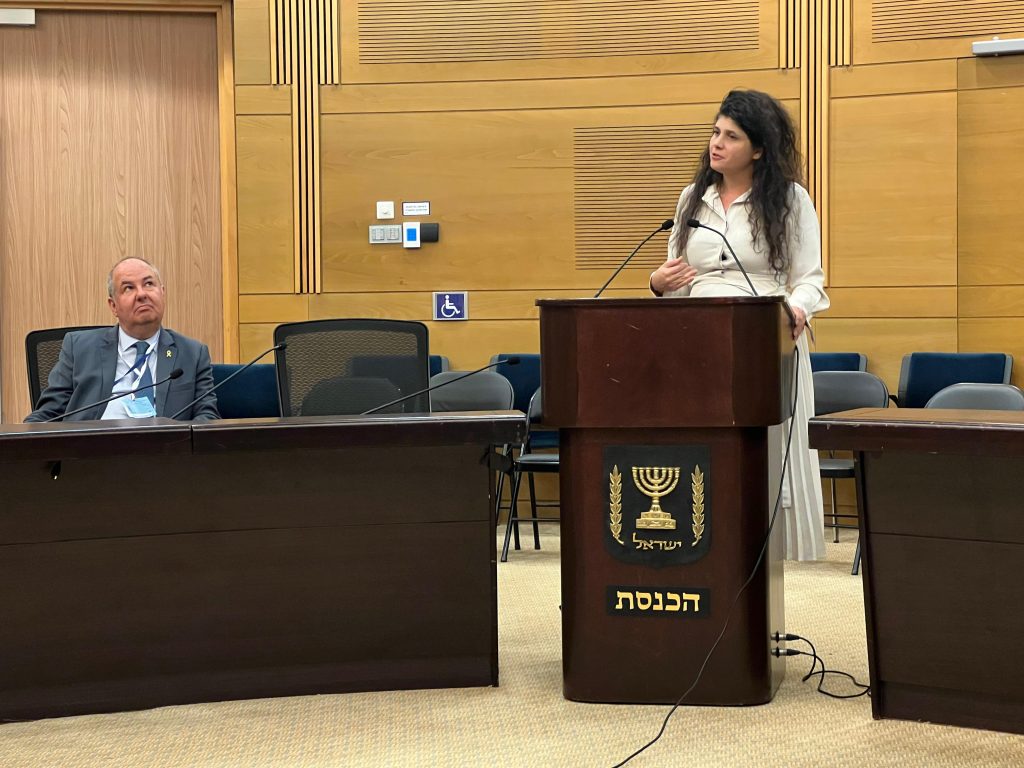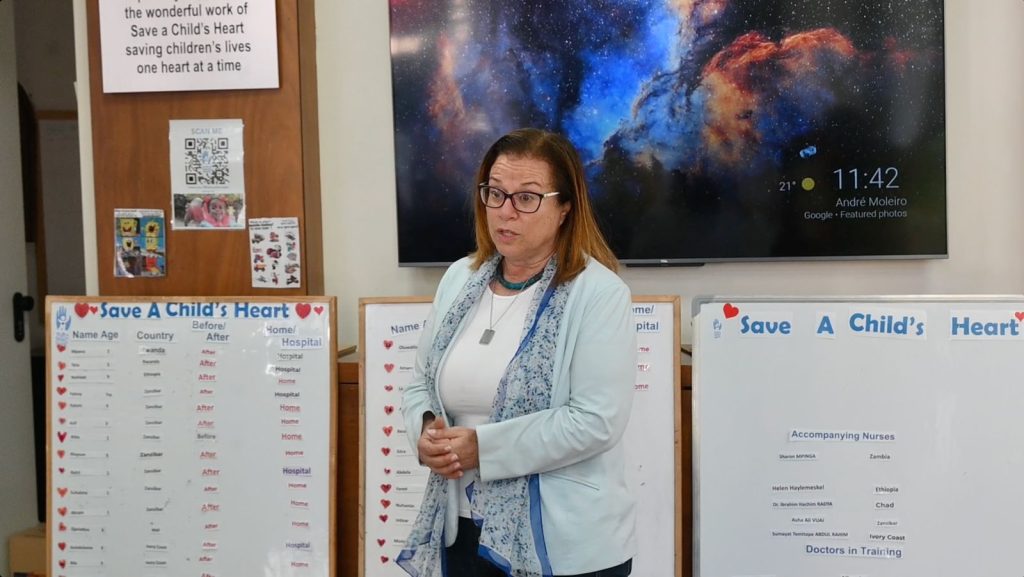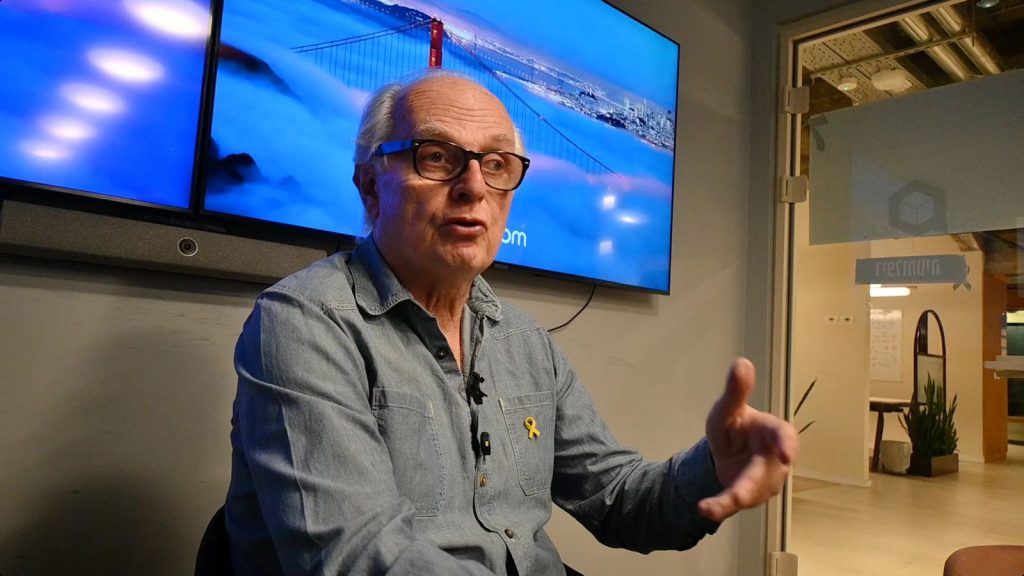By Beatrice Asamani Savage, GNA Special Correspondent, Israel
Jerusalem, Jan. 6, GNA — The importance of upholding national identity and the transformative power of youth leadership are imperative for every nation’s development and sustainability.
These elements, deeply rooted in Zionist values, continue to shape Israel’s response to crises such as the October 7, 2023, attacks, reaffirming its resolve to thrive amidst adversity.
Israeli diplomats and citizens highlighted these themes in discussions with African journalists during their recent visit to the middle-Eastern country.
Briefing journalists at the Knesset, Ms Sharren Miriam Haskel, Israel’s Deputy Minister of Foreign Affairs, underlined how identity and leadership, particularly, among the youth, served as the nation’s backbone in challenging times, enabling it to remain strong and forward-looking.

Ms Haskel spoke passionately about the importance of preserving this identity in the face of growing global distractions and distortions, particularly, among younger generations.
“There is a serious crisis of identity today. Young people are often influenced by platforms like social media, which distort history and lead them away from their roots,” she noted.
“To counter this, we must ensure that our youth understand their history, culture, and values. Only by knowing their past can they confidently shape the future,” she stated.
Ms. Haskel emphasised that the Jewish nation’s identity is deeply tied to its historical struggles and triumphs.
From the ancient exile of the Jewish people to the horrors of the Holocaust and the establishment of the state of Israel, these collective experiences had instilled a sense of purpose and unity over many decades.
“This identity is not just about religion or culture; it is about shared values like freedom, equality, and responsibility. These values are the bedrock of our society, and it is vital to instil them in the next generation,” she said.
Ms Haskel emphasised the importance of young people stepping into leadership roles to drive change and safeguard the future.
She recounted her own journey into leadership, from serving as a combat soldier during the Second Intifada to becoming a Knesset member and now a deputy minister.
“Young people often shy away from leadership because they see it as too complicated or overwhelming. But if the younger generation does not rise to represent themselves, their values, and their people, no one will do it for them,” she said.
She explained that leadership thrived with self-confidence rooted in a deep understanding of one’s identity. “When you represent your people, you are not just representing their present but also their past and future. This requires a strong sense of who you are and where you come from,” she explained.
In an interview with the Ghana News Agency, Ofra Farhi, Israel’s Ambassador to Zambia, Botswana, and Namibia, described how Zionism not only shaped Israel’s identity but also served as a beacon of hope and strength in difficult times.
“Zionism is the essence of our being, of living here in the state of Israel. This is the Jewish state. While 80 per cent of the population is Jewish, the remaining 20 per cent—Muslim or Christian—are part of this shared history on the Holy Land given to us by Abraham 3,000 years ago,” Ambassador Farhi explained.

She traced the roots of Zionism to the Jewish people’s enduring connection to their land, despite centuries of exile.
Even in displacement, they maintained their identity through religion, culture, and shared values, she noted.
“Wherever we were—whether in Europe, the United States, or Ethiopia—the Bible kept us united. Our faith and the principles of the Ten Commandments instilled values of care and responsibility for one another. These principles were not only a source of survival but also the foundation upon which we rebuilt our nation,” she stated.
Amb. Farhi shared her family’s personal journey as a reflection of the Zionist spirit. Her father’s family, exiled from Spain in the 15th century, migrated through Bulgaria and Lebanon before returning to Tel Aviv in the 1920s.
Her mother’s family survived the Holocaust in Europe, hiding in a convent during World War II, before immigrating to Israel as an act of Zionist defiance and hope.
“My mother tongue was Italian, but my family chose to prioritise Hebrew, the language of the Bible, as a way of reviving our culture. In just 100 years, we turned Hebrew into a living language, an extraordinary achievement that embodies the Zionist vision,” she said.
“The October 7 attacks were devastating, but the Zionist spirit ensured that we stood strong together. It is our foundation, enabling us to overcome challenges and build a thriving society,” she noted.
For his part, Mr Daniel Shek, a retired Israeli diplomat, said the nation’s solidarity and commitment to collective well-being powered the response to the October 7 Hamas attacks, in more than 1200 people were massacred.

Amb Shek, who is the Head of the Diplomatic Team of the Families of Hostages Forum, briefed the journalists at their Tel Aviv, headquarters, alongside two relatives of the hostages.
He shared how Israelis put their personal lives on hold to volunteer their expertise. “We saw professionals from legal, medical, mental health, and media fields coming together without hesitation to support families in distress. This level of dedication is a hallmark of Israeli society,” he said.
They are helping the families of the hostages to manage their emotional and psychological turmoil. “Imagine 250 families whose lives were normal until October 6. Within hours, their world exploded,” Mr. Shek recounted.
“One of the few happy manifestations of the last year in this country is the mobilisation of civil society in a number of areas, and in particular, care for the hostages and their families.
“So, the forum was emerged, sort of happened immediately after October 7th, 2023, on the day after, created originally by a few families of people who were presumed to have been abducted. Nobody knew for certain at the time exactly what was happening.
“ They sort of found each other, and in what I’d call a very Israeli manner, they knew somebody, each of them knew somebody, and that somebody knew another somebody, and that somebody knew five somebodies.
“And by the time I joined, which was on October 10th, three days after, there were literally already hundreds of people who came to volunteer – it was mostly professionals in a variety of professional categories, and some of them really the brightest and most talented and experienced minds in Israel in their fields, legal experts, medical experts, mental health experts, media strategists, PR companies, social workers, etc., etc., who just put their lives and their careers on hold, and came because they felt that they could do something useful. And of course, hundreds of family members of the hostages.”
He explained that the sudden disappearance of loved ones left many families unable to work or manage everyday tasks. The initial weeks were marked by government agencies being overwhelmed, forcing families to depend heavily on civil society organisations, such as the Hostages Families Forum.
The Forum provides essential services, including legal aid, mental health support, and financial assistance. “Each family has a designated support person to help navigate the unpredictability of their new reality, yet the burden remains enormous,” he added.
Beyond immediate family care, the Forum channels efforts into advocacy, working with Israeli authorities and the international community. Amb Shek described how Israeli patriotism extended globally, with volunteers leveraging diplomatic experience and networks to amplify the plight of hostages.
“We serve as the voice for these individuals, ensuring their stories are not forgotten. Forgetfulness is their second-worst enemy after their captors,” he stressed.
More than 250 hostages of various nationalities were taken, with families enduring months of uncertainty.
Despite an initial hostage exchange deal and rescue operations, some 100 remain in captivity.
GNA